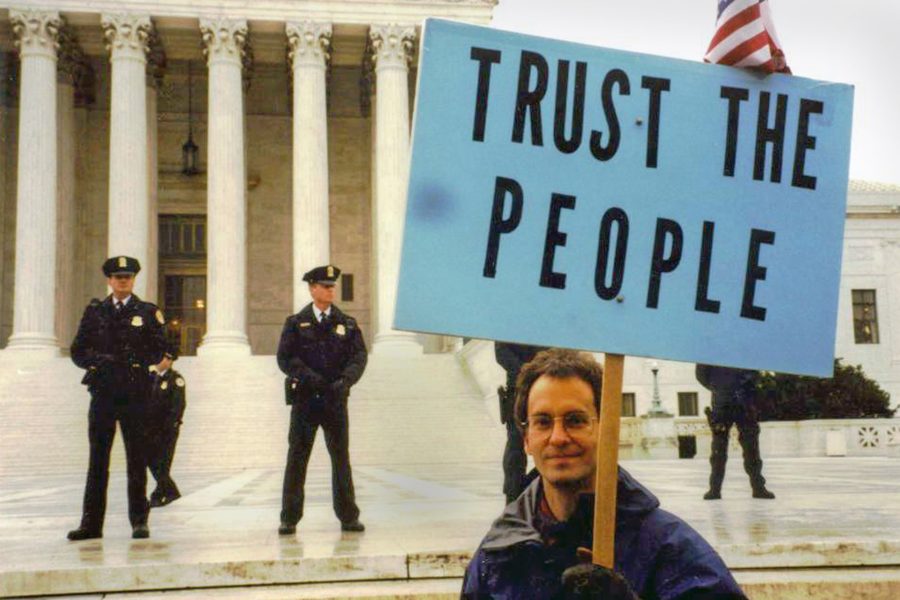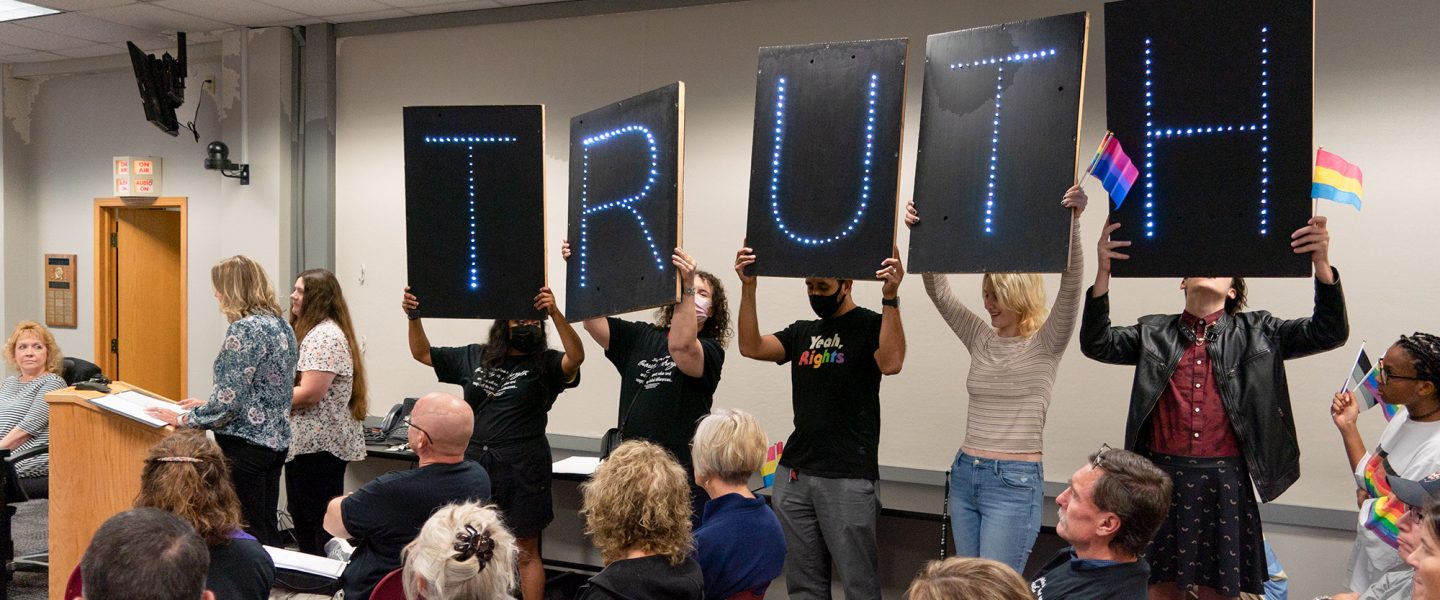Defending Our Democracy: Mission Possible
We can surrender or we can fight. What we cannot do is deny that it’s a war.
|
Listen To This Story
|
In its shock and impact, Israel’s 10/7 has much in common with the US’s 9/11. One major difference, however, is to be found in the prevailing view that Israel’s internal divisions — and especially the disruptive machinations of its leader, Prime Minister Benjamin Netanyahu — left the traditionally secure, indeed hyperfortified, nation more vulnerable to Hamas’s brutal attack.
A dysfunctional body politic — the cronyist appointments of the unqualified to key positions; the corrosive effects of Netanyahu’s judiciary-restructuring power grab; his far-right coalition’s obsession with aggressively “settling” the West Bank; an ongoing series of mass demonstrations — gave rise, in this analysis, to a degradation of defense and intelligence capabilities and a dangerous drop in national security.
Numerous observers have pointed out the lessons that Israel’s troubles hold for us here in the US.
America, too, is a country plagued by crippling divisions. We suffer from arguably a more pervasive and hostile tribalism than at any time in living memory. We are in the crosshairs of a would-be strongman committed to maximally exploiting the very division he has fostered, while uprooting the fundaments of democracy and the rule of law, both in his quest to retake power and, as openly advertised, should he succeed in that quest. And it’s a quest backed by a massive and terminally devoted cult following that has proven immune to fact, logic, and every effort to deprogram. It’s fair, I think, to say that we are at least in Israel’s league when it comes to looming dysfunction.
Unlike Israel, however, America is not surrounded by sworn enemies and not particularly vulnerable to invasion. You’d have to go back over 200 years to the last serious military assault on its borders and, realistically, the only latter-day military threat would be a nuclear, or perhaps biological, attack. America spends more on its defense forces than the next 10 most fortified countries combined. And since 9/11 and the hardening that came in its wake, even the threat of terrorism is regarded to have shifted primarily to fringe domestic groups — witness Jan. 6.
So, while there are lessons for us in Israel’s political dysfunction and breakdown, the dangers that we face are far more likely to be internal than external. And that places the pro-democracy, rule of law-upholding elements here in a difficult, if not outright paradoxical, predicament.
We are encouraged, indeed exhorted, to “get involved” — or get more involved — in the struggle. To strike a blow for sanity and decency by showing up at school board meetings, running for local office, contributing generously to right-minded campaigns and causes, voting, lobbying, demonstrating, and attempting to engage in constructive debate with anyone we know to be of MAGA bent.
Put another way, how do we stay on our level when they keep advancing on their level? It is the classic pacifist’s dilemma: What do you do when they come for you, guns drawn?
If we sit back, passive and disengaged — ceding the field to the worst who, in Yeats’s well-worn formulation, are “full of passionate intensity” — we invite a swift transformation to something that, not long ago, seemed impossible: an authoritarian regime with strong Christofascist proclivities, the reascent of Donald Trump or equivalent, and the precipitous breakdown of the safeguards of democracy, the separation of church and state, and the rule of law.
On the other hand, if we dust off and act on our convictions, not just lamenting the MAGA vision but meeting head-on the mounting threats to implement it by any and all means — including a relentless barrage of lies, the stoking of political and institutional chaos, and inexorably escalating violence — how can we avoid playing straight into the hands of the bomb throwers and consummating the very civil war they seem so intent on provoking?
Put another way, how do we stay on our level when they keep advancing on their level? It is the classic pacifist’s dilemma: What do you do when they come for you (or for those you know need and deserve protection), guns drawn?
In place of guns — for the moment, at least — just substitute lies, schemes, rage- and hatred-stoking, sneering, doxxing, threats of violence, election manipulation (executed by them), and false charges of election manipulation (aimed at you). The whole arsenal of vile, end-justified (in their view) means.
If we, as defenders of democracy, respond in kind, we will have sacrificed the very commitments and standards that give a democracy its life and strength. We will have gifted breakdown and chaos — the fertile soil from which authoritarian states arise — to those whose goals are breakdown and chaos.
If instead we hold to those commitments and standards, fighting only with the political weapons sanctioned by the democratic process, then we run the odds-on risk of getting rolled, beaten down by those to whom neither conscience nor decorum present an obstacle.
The United States is hardly alone in flirting with the simplicity, efficiency, and seeming security of autocratic rule. Even as the post-Cold War forecast heralded a sweeping global democratization (the democratic West, after all, had “won”), the backlash was underway. Wealth and power, perpetually seeking consolidation and finding democratic processes a pesky impediment, staged what amounted to quiet coups in nations as disparate as Hungary, Turkey, Venezuela, Russia, the Philippines, and, it could be argued, Netanyahu’s Israel. Even stalwart democracies like France, Germany, and the UK face credible threats from far-right figures and parties that may or may not honor and preserve the democratic process once in power.
But the US, as the ur-democracy, has long been considered immune to such a collapse. As feisty as its politics could be in some periods, its wounds were never lethal, its vital organs too well protected. The unwavering principle of US politics has been an acceptance, by each party, that it could rule today or rule tomorrow, but not both — that, in other words, perpetual rule was not an option, not to be sought or expected, and therefore not an existential threat.
That changed with Karl Rove, the Republican operative whose goal was a permanent Republican majority — i.e., perpetual rule. There’s much that could be and has been written about the genesis of this new, and ultimately dangerous, approach to domestic politics. Some trace its conception as far back as the landslide defeat of far-right GOP presidential candidate Barry Goldwater in 1964, and the subsequent regrouping into think tanks, such as the Heritage Foundation and the Council for National Policy, patiently incubating long-range plans for political transformation and domination.
For our purposes here, it is enough to observe that this long-cultivated taproot has — with the capture of the Supreme Court, the computerization and privatization of elections, and the ascent of Donald Trump and his MAGA cult — borne fruit of tremendous toxicity.
Every day, it seems, another democracy-upholding norm is shattered. The instigator of an insurrection, facing trial on four separate criminal indictments and 91 felony counts (aside from a major civil fraud trial), is not only the presumptive nominee of the major party that squirms under his thumb, but is even-money to recapture the White House he defiled.
Meanwhile, the principal legal architect of that figure’s attempted election-denying coup has been held accountable for it by being elevated to the speakership of the House, arguably the second most powerful political animal in the zoo.
Speaker Mike Johnson (R-LA) is a Christian nationalist with a nice smile and a 13th-century mind, who refers questioners about his policy positions to the Bible and is a committed “young Earth creationist” — maintaining our planet, along with the rest of the universe, is something on the order of 6,000 years old, or whatever more precisely the Book of Genesis says it is, carbon-14 and uranium-238 dating be damned.
Johnson, aside from his odious policy agenda, is on a jihad to restore God and Christianity (the only religion that is “censored,” in his view) to their proper place on the social, economic, and political mountaintops. He rails against the loss of “all sense of right and wrong,” and the “transcendent standards” of our halcyon days, but somehow manages to exempt the likes of Reps. Matt Gaetz (R-FL) or George Santos (R-NY) — and of course Trump, among whose biggest fans he is — from that sense and those standards.
The House Republicans, guided and goaded by Trump, could not have found, if they had looked for three more years, anyone more politically abhorrent. Their unanimous selection of Johnson tells us more about where we have arrived politically than even the party’s looming nomination of Trump.
From the Supreme Court and the House to school boards and county elections offices — from highest to lowest strata — the advance of an implacable minority with a fierce will, a roiling rage, and a biblically justified conviction that they are the saviors, entitled to employ all means to ensure the success of their crusade, is palpable. They are impatient with the inefficiencies and impediments of our democracy, and ready to welcome strongman rule — if that strongman is Donald Trump, or one fit to wear his mantle.
Because we cannot permit ourselves to use bombs to stop the bomb-throwers, or guns to shoot the shooters, our task is far harder than theirs. It is to become active, or more active, in the very arena that has become so broken and uninviting — to invest more time and energy than we ever thought necessary or even possible.
Unfortunately, for the defenders of democracy — for us — it is late in the game. While the think tanks thought and plotted; while dozens of high court decisions like Bush v. Gore, Citizens United, Shelby County, and Rucho dealt democratic processes blow after blow; while much of our media, national and especially local, was captured by disproportionately right-leaning moguls and corporations; while the promise of social media turned into the fever-swamp dominated by the likes of Xitter; and while Donald Trump emerged from that swamp to lead the charge against and exploit every vulnerability of an already weakened democratic structure — while all this was going down, we, for the most part, watched.

We looked on with disapproval and dismay and much wringing of hands, but believed our democracy to be inviolable at its core. Yes it was bad and getting worse, yes it was ugly and getting uglier — but this was America and the good would pull through.
That’s no longer a sure bet. It may not even be an even bet. And many now feel overwhelmed — I know I do — exhausted and prone to despair, ready to hunker down and try to ride out the storm.
I beg you: Don’t do that.
Precisely because we cannot permit ourselves to use bombs to stop the bomb-throwers, or guns to shoot the shooters, our task is far harder than theirs. It is to become active, or more active, in the very arena that has become so broken and uninviting — to invest more time and energy than we ever thought necessary or even possible. And to use only the sanctioned weapons of democracy — our labor, our money, our smarts, our eloquence, our persistence, and our numbers — to save that democracy in this moment of crisis.
For we have the numbers. And we have the votes. Which is why there is a whole array of schemes in most states and counties under GOP control to keep a lot of us from voting — schemes it is on each one of us to frustrate by verifying our registration and jumping through any gratuitous administrative hoops set in our path — and why the GOP has gone to the mat to block the protection of voting rights at the federal level. But if we refuse to wilt in the face of these anti-democratic stunts, we far outnumber the cultists, the Trump-deluded, blinded, fear-driven, rage-drunk MAGAs. And we have the additional collective advantage of far greater and deeper knowledge and insight. This war is winnable.
But the first step is to recognize and process the shocking fact that it is a war. Indeed, for many MAGAs and Christofascists, it is a holy war.
We can surrender or we can fight. What we cannot do is deny that it’s a war, deny the reality of it. What we cannot do is expect someone else to do the fighting for us.
It will not be pleasant. It will not be easy. It will, in fact, be burdensome. But it is our mission — those of us who care for our democracy, our country, our planet — and it is Mission Possible.
If we choose to accept it.
Jonathan D. Simon is a senior editor at WhoWhatWhy and author of CODE RED: Computerized Elections and the War on American Democracy.
WhoWhatWhy values our readers’ input and encourages you to drop us a note with your thoughts on this article at MyView@whowhatwhy.org.




